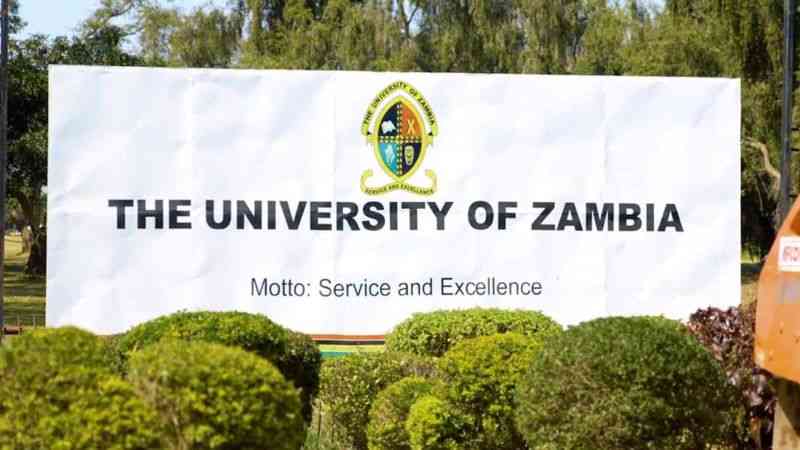
MY heart swelled with anger when my eye caught sight of a newspaper article early this month titled The UK Rubbishes, University of Zambia (UNZA) degree.
This relegation of the institution by the British government was based on their assessment of the degrees through their National Academic Recognition Information Centre. As I went through this article, my attention was immersed on looking for the reason for this condemnation of the university in this manner.
I got it.
According to the article, key among other criteria for measuring the quality of a university is the ability of a country to utilise its available resources to benefit the nation economically and socially. This ability by the country is testimony that university graduates from local universities in that country do or do not provide sound judgment and make decisions for utilising the country’s resources properly to uplift standards of living of the local citizens.
The University of Zambia fails to achieve this, the article implied.
Copper mines have been sold to private international companies and corruption instigated by multinational corporations is rampant. Zambia, therefore, as a country even though with plenty of mineral resources, does not benefit. This is all because of the academic institution that does not meet the standard to produce graduates who can make these desired decisions; the article retorted.
A scenario is depicted by many developmental economists and academics that there is a tendency for developing countries having a plentiful supply of natural resources, but such countries are found languishing in poverty still.
Richard Auty, a professor at Lancaster University, has coined a term for such a scenario as “resource curse” or “poverty paradox” or “paradox of plenty.” However, in as much as the depiction of such a situation is true and real, the apportionment of a responsibility and, therefore, a blame to academic institutions of higher learning of developing countries for such failure is misplaced and wrongful. The blame for the failure of many a developing nation to develop their nations in proportion to the abundance of their resources lies squarely at the door of policymakers and politicians and not academic institutions. The following are the reasons I advance for my refusal to admit the guilt of universities.
- It is politicians who make investment decisions and make investment agreements with other States. There is a visible disconnect between academic institutions and politicians in many a developing country. Many developing countries and African governments in particular, work in isolation and in parallel with academic institutions. Academics do research and publish well researched papers in journals and articles in newspapers, but politicians do not read to apply what has been researched and published.
- In many progressive developed countries, special advisors to governments and Presidents are academics. For example, the special advisor of Vladimir Putin, the Russian President is a university professor, and so is the British Prime Minister’s. Of course, some developing countries have presidential advisory teams. The selection criteria of membership into such teams is, however, based on social capital rather than human capital, (whom one knows rather than what one knows). It becomes a club for sharing benefits that accrue in the exercise.
Mutual agreements for investment between nations are done by governments. The latter decide what form the agreement should take, if it is to do with trading in mineral resources without any beneficiation within the country, that is it.
Academic institutions have no part to play nor can they intervene. It is politicians who decide. Of course, consequences follow after each decision has been made. The question, therefore, is: Should those who have not been part of the decision be blamed for the results of the decision? Categorically, no!
- Moreover, UNZA was established in 1966 during the tenure of Kenneth Kaunda, the country’s first President, prompted by the need to develop skills that could make use of the country’s resources to benefit the nation. Negative sentiments against proper education for Africans had, however, been set earlier instigated by Cecil John Rhodes, who signed an agreement for Mineral rights with King Lewanika to mine Copper in the country through his British South Africa Company. Cecil John Rhodes insisted that the natives shall not benefit from the franchise of mining, hence they should not be provided with adequate education to understand how to benefit from the minerals produced. Copper, therefore, had to be shipped to Britain with no provision for benefiting the natives.
The above is the background and circumstances surrounding the University of Zambia. These developments are a pointer that the indictment about UNZA is coming to most universities in developing countries, even our Southern African Development Community universities. When, we have similar circumstances and conditions, we get similar outcomes or results.
Politicians should take proper charge and seek advice from academic institutions. Silo mentality should cease. Politicians need advisors who research and solve questions for the nation and these are academics. Never should academic institutions be blamed for what they do not participate in.
- Reinford Khumalo is a professor of business leadership and organisational behaviour. He is a keen consultant in his area of expertise and advisor to many organisations. He writes here in his personal capacity.










